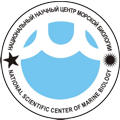 |
News & Announcements
Visit of representatives of the Consulate General of the Republic of India in Vladivostok to NSCMB FEB RAS
On March 26, 2025, a delegation of the Consulate General of India, led by Mr. Siddarth Gawrav, Consul General, paid an official visit to the NSCMB FEB RAS. The delegation also included Mr. Yadav Sachin, a Counselor to the Consul General, and Ekaterina A. Volesova, an Assistant Consul General. The event was hosted by Dr. I.Yu. Dolmatov, a Corresponding Member of RAS, the Director, by Dr. K.A. Lutaenko, the Deputy Director for International Cooperation, by Dr. A.V. Boroda, a Deputy Director for Science, and by Mrs. A.I. Grishina, as a specialist of the International Cooperation Department.
Visit of the President of the Pacific Science Association (PRC)
On March 19, 2025, Professor Lyu Yonglong from the Xiamen University, Xiamen, the President of the Pacific Science Association (PRC), visited the NSCMB FEB RAS.
Russia – China Bilateral Workshop 2025
On September 23–24, 2025, A.V. Zhirmunsky National Scientific Center of Marine Biology FEB RAS (NSCMB FEB RAS) and the Institute of Oceanology, Chinese Academy of Sciences (IOCAS) will hold the 7th NSCMB–IOCAS bilateral workshop in Vladivostok, Russia. The workshop will include only oral presentations and discussions. The workshop is dedicated to the 55th anniversary of the NSCMB FEB RAS, will be held immediately after the celebration day (September 22) and will precede the national marine biology meeting organized by the NSCMB on September 25–26, 2025.
View/Download First Circular
All-Russian Conference with international contributions, "Lipid Biochemistry", on October 7–8, 2025, in Vladivostok
The A.V. Zhirmunsky National Scientific Center of Marine Biology, Far Eastern Branch, Russian Academy of Sciences, invites you to participate in the All-Russian Conference with international contributions, "Lipid Biochemistry", on October 7–8, 2025, in Vladivostok. The conference is dedicated to the 90th anniversary of the birth of the outstanding biochemist Viktor Evgenievich Vaskovsky.
The preliminary conference program includes the following sessions:
- History of lipid research and novel research methods
- Lipids of aquatic organisms
- Lipids of plants and fungi
- Lipids and human health
- Practical applications and lipid biotechnology
The conference aims to strengthen scientific and professional contacts and coordinate the development of scientific research in the field of lipidology. Leading Russian biochemists are scheduled to present their review reports on the conference topics.
Participation in the conference is free; no registration fee is required.
Conference format: Hybrid - in-person or remote participation.
Presentation formats: Oral (plenary, sessional) and poster.
Conference languages: Russian and English.
Conference venue: Conference hall of the A.V. Zhirmunsky National Scientific Center of Marine Biology, Far Eastern Branch, Russian Academy of Sciences (NSCMB FEB RAS), Vladivostok, ul. Palchevskogo 17.
The conference proceedings will be published with an ISBN, registered in the Russian Science Citation Index (RSCI) system, and made in the Russian Scientific Electronic Library (eLIBRARY.RU).
Important Dates
- May 15, 2025 - Deadline for abstract submission
- September 15, 2025 - Deadline for registration.
View/Download First Circular
Download Registration Form
International activities of the NSCMB FEB RAS in 2024
Igor Yu. Dolmatov, the Director of the NSCMB FEB RAS and a Corresponding Member of RAS, approved the annual report of the International Cooperation Department (ICD), jointly prepared with the ICD of the Primorsky Aquarium scientific and educational center, a branch of the NSCMB FEB RAS.
A delegation of NSCMB FEB RAS participated in scientific conferences held in China
In November 2024, staff members of the A.V. Zhirmunsky National Scientific Center of Marine Biology, Far Eastern Branch, Russian Academy of Sciences (NSCMB FEB RAS), led by Dr. I.Yu. Dolmatov, the Director and a Corresponding Member of the RAS, and Academician A.V. Adrianov, the Scientific Supervisor of the Center, participated in three major conferences in China. The delegation also included Dr. Mordukhovich and Dr. Orlova, the Deputy Directors for Science, Dr. Mayorova, the Scientific Head of the Laboratory of Marine Ecosystem Dynamics, and Dr. Malyutina, the Leading Researcher of the Laboratory of Systematics and Morphology.
Dalian Ocean University delegation visited NSCMB FEB RAS
In late November, the A.V. Zhirmunsky National Scientific Center of Marine Biology, Far Eastern Branch, Russian Academy of Sciences (NSCMB FEB RAS), hosted a meeting with representatives of the Dalian Ocean University. In April 2023, the NSCMB FEB RAS and the Dalian Ocean University signed a Memorandum of Understanding for five years with the option for further extension.
| Contacts: |
|
Palchevskogo str. 17 |
|
Vladivostok, Russia, 690041 |
|
Phone: +7 (423) 2310905 |
|
Fax: +7 (423) 2310900 |

